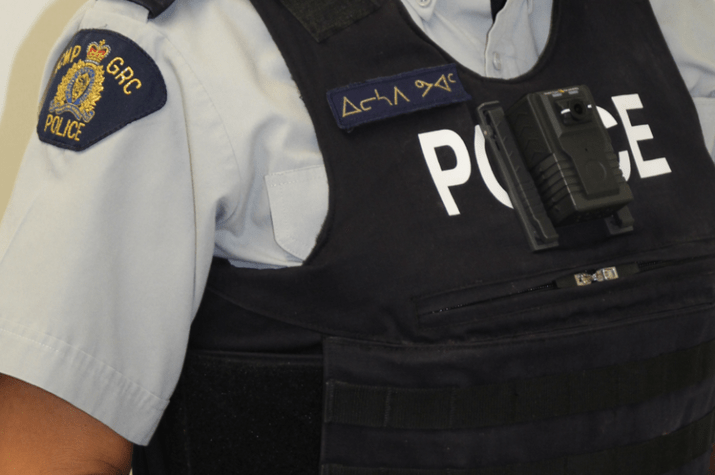
The RCMP is beginning to roll out body cams nationally and Drumheller officers are slated to begin using the technology as early as February.
Last week the RCMP began the rollout of body-worn cameras and a Digital Evidence Management System. These will track officers’ interactions with the public in real-time.
Last February the RCMP began field testing the technology and today a few detachments across the country are using them.
“Drumheller RCMP members will be fully trained and have them in some point in February,” Staff Sergeant Robert Harms tells the Mail. “Right now we are working on deployment and getting the members trained.”
“We are on the next roll-out so I am quite pleased with it.”
He says right now they are in a public notification/consulting phase. He will be reaching out to different groups and local councils to notify and get feedback.
“We have done some consultation, and there is still a lot more to do, but I have yet to run into someone that disagrees with us wearing them,” said Harms.
The body-worn cameras have many applications. For the police, it can help gather evidence, record interactions, catch crimes in progress and further investigations.
For the public, it can help increase trust in their interactions with officers.
“The cameras have multiple uses for us. First off it is about transparency and accountability to the community. It is also about evidence gathering and disclosure to the courts. It is also about officer safety and effective policing,” he said. “There is no reason in my opinion not to have them.”
It is expected to take 12-18 months for the full roll-out and there will be between 10,000- 15,000 cameras deployed to frontline contract and federal police officers. The technology will be uniform.
He also notes there is extensive training on how and when to use the camera. They are not for surveillance, nor are they to be used for 24-hour recording. They are not to be used in intimate settings such as strip searches or cavity searches and not to be used in areas with a high expectation of privacy, such as washrooms, hospitals, treatment centres or religious places.
According to a brief, officers must activate their cameras before arriving at a call for service, such as a crime in progress, public disorder and protests, mental health calls, interactions with people in crisis and to record information to support the performance of their duties. When possible officers will let the people they are interacting with know when the camera is recording.
“Currently we are taking steps to outfit the detachment with the necessary equipment and accessories to facilitate this; installation of docking/charging stations, electrical work, etc,” he said.







